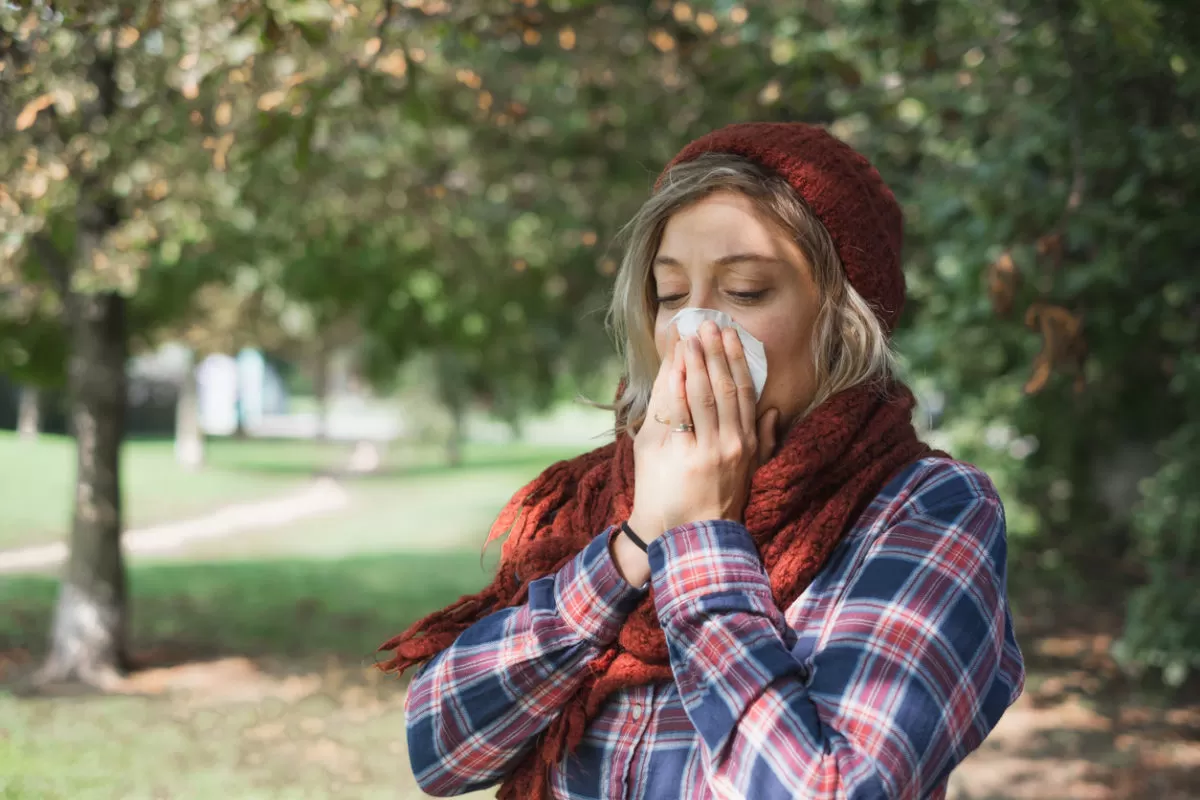
Most people assume that seasonal allergies are only a problem in the spring months. Little that you know that these allergies can linger into the fall season. Common allergy symptoms include a runny nose, watery eyes, and sneezing. As we are heading into the fall season, you need the right tips to manage your allergies, which we will share in this article. Without further ado, let’s jump straight into the good stuff.
Allergies in the Fall
Ragweed is hands down the most prominent allergy trigger in the fall season. It begins to release pollen at the beginning of August but can continue well into October. Nearly 75% of people allergic to spring pollen also have some reaction to ragweed. People allergic to ragweed also react to bananas, melon, and zucchini. Even when it doesn’t grow where you currently reside, it can travel for hundreds of miles on the wind.
Another primary fall culprit is mold. If mold grows anywhere in the house, it can worsen your allergies. Washrooms, the basement, piles of damp leaves, and wet spots outside are ideal breeding grounds for mold. Don’t think that dust mites will not linger into the fall months. It can trigger sneezes, runny noses, and wheezes. Kids who return to school during this month can bring allergies and dust mites.
Symptoms of Fall Allergies
Symptoms of spring and fall allergies can be pretty different for everyone. The symptoms also vary based on what body part is impacted by the allergen. Common symptoms of these allergies include:
- Runny nose
- Sneezing
- Watery
- Itchy eyes
- Trouble breathing
- Itchy throat
- Upset stomach
- Hives
- Eczema
Causes of Fall Allergies
With the drop in temperature and weather changes, plants and weeds start to release pollen into the air. Moreover, fallen leaves are a perfect house for mold spores to grow. Common causes of fall allergies are:
- Airborne pollen
- Mold
- Mildew
- Dust mites
- Pet dander
Fall allergies can be triggered as temperatures start to fall and you get exposed to triggers indoors and outdoors.
Tips for Managing Symptoms of Fall Allergies
If you struggle with fall allergies, the following tips can manage your allergies effectively:
Stay Indoors in the Early Morning
If you are allergic to fall pollen, it is wise to stay indoors in the morning. Stay on the lookout for pollen levels in the area. If they are high, try to stay indoors as much as possible. If you need to go out, wear protective masks or try to delay your visit till the evening when the pollen count is the weakest.
Cover Up Your Skin
When you plan to go outside during the fall season, it is best to cover your skin to prevent it from coming in contact with allergens. Get yourself some trendy long sleeves tops/dresses/shirts, pants, and even a hat. Wearing a mask is super important, especially when you are doing yard work or anything that could stir pollen.
Wash Your Hands
As soon as you come home from the outside, immediately wash your hands and take a shower (do not forget to wash your hair). It will get rid of all the pollen that is stuck on you. It is always a great idea to keep your home shoes separate from outdoor shoes. It will keep your pollen outside the home.
Hang Your Clothes Inside
Do you have a habit of hanging your clothes outside in the summertime? During the fall months, we recommend turning your clothes on the inside. It will prevent allergens from sticking to them and worsening your condition.
Buy a Dehumidifier
A significant investment you can make to manage your allergies is to get your hands on a dehumidifier. These machines remove dust, mold, and other allergens that will help you breathe easier. Mold and mites thrive in a wet environment. A dehumidifier will prevent these allergens from growing in your home. Place it in your bedroom or living room, where you spend most of the day. You can also set your air con on the dehumidifier mode to achieve the same effect and clean your air.
Be Religious About Your Medication
If your doctor has prescribed an allergy medication, be religious about taking them. It will help you manage allergy symptoms more effectively and prevent problems like difficulty breathing, sneezing, runny nose, and itchy eyes. If the conventional medication makes you drowsy or the dosage doesn’t work, you can always opt for compounding meds. Your healthcare provider and a compounding pharmacist can devise a perfect treatment plan for you.
Common OTC Drugs for Allergies
OTC drugs can help control the symptoms of your allergies. The most common include:
Oral Antihistamines
Antihistamines cure the following symptoms: sneezing, itching, a stuffy or runny nose, and watery eyes. Some great options are cetirizine, fexofenadine, and loratadine.
Corticosteroid Nasal Sprays
These work wonders for improving all sorts of nasal symptoms. Great options to try are fluticasone propionate, budesonide, and triamcinolone.
Cromolyn Sodium Nasal Spray
This works by blocking the release of immune system agents that can worsen the symptoms. It is best to use this before exposing yourself to allergens, such as stepping outdoors, cleaning, etc.
Oral Decongestants
Some medications are a combo of antihistamines and a decongestant. While they aren’t a permanent treatment, they work well as a temporary solution to nasal stuffiness. Some great options are cetirizine-pseudoephedrine, fexofenadine-pseudoephedrine, and loratadine-pseudoephedrine. Always talk to your healthcare provider before using a decongestant.
Final Takeaway
We hope you found this information helpful! What do you do to keep the allergies at bay? Do you have any special tricks of your own? We would love to know. If you have any questions, feel free to reach out to us, and we will get back to you.
Disclaimer: This article is for informational purposes only and shouldn’t be substituted for medical advice or diagnoses. Always talk to your healthcare provider in case of any health concerns.

 info@burtsrx.com
info@burtsrx.com
